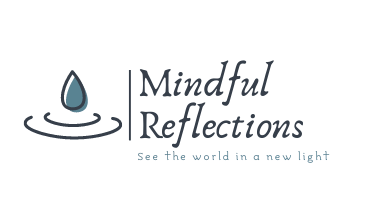Exploring the Impact of Hormonal Changes on Postpartum Mental Health
Postpartum hormones: the rollercoaster you never signed up for.
Becoming a mom is an incredible journey, filled with love, joy, and, let’s be honest, a whole lot of unexpected challenges.
One of the biggest ones? Those pesky postpartum hormones.
It’s like your body is on a wild ride, and you’re just trying to hold on for dear life. One moment you’re feeling on top of the world, and the next, you’re questioning everything.
You’re not alone. Millions of women experience this, and it’s totally normal.
Let’s dive in together and explore how these hormonal shifts can impact your postpartum journey.
How long does it take for hormones to balance after having a baby?
This is one of the most common questions new moms ask themselves.
Let’s be honest, it’s like asking how long a piece of string – the answer is, it depends. Every woman’s body is a unique masterpiece, and the time it takes for your hormones to settle down can vary greatly.
While some lucky ladies might start to feel like themselves again within a few weeks, others might experience hormonal ups and downs for several months. It’s important to remember that your body has just accomplished something extraordinary – growing and birthing a human!
So, give yourself some grace and patience.
Your body is busy healing, adjusting to a new routine, and learning to produce milk if you’re breastfeeding. It’s like baking a complex soufflé – it takes time for all the ingredients to come together and create something truly delicious.
Remember, patience is key. Your body is healing and adjusting to a whole new world, and that takes time. Be kind to yourself and celebrate small victories along the way.
When is the biggest hormone drop postpartum?
Picture this: your body has been a bustling hormone factory for the past nine months.
It’s been working overtime to create a tiny human, and everything is running at full speed. Then, suddenly, the baby arrives, and the factory starts to wind down. This rapid decrease in hormones is what we call the postpartum hormone crash.
It’s like going from a rollercoaster to a sudden stop. No wonder many women experienced the “baby blues” in those early days. This hormonal freefall can contribute to mood swings, tearfulness, and feeling overwhelmed.
But don’t worry, it’s completely normal. Your body is working hard to recover and adjust to its new normal. Give yourself permission to rest, seek support, and lean on your loved ones during this time.
Remember, you’re not alone in this, and these feelings are temporary.
What are the symptoms of postpartum hormones crash?
A postpartum hormone crash can feel like an emotional rollercoaster.
It’s like your body is trying to find its balance after the whirlwind of pregnancy and childbirth. You might experience a wide range of symptoms, both physically and emotionally.
Common emotional symptoms include mood swings, irritability, anxiety, sadness, and feeling overwhelmed.
It’s like you’re on a constant emotional seesaw. Physically, you might notice changes in your sleep patterns, appetite, or energy levels.
Headaches and difficulty concentrating are also common.
It’s important to remember that experiencing these symptoms is normal and doesn’t necessarily mean you have postpartum depression. However, if your symptoms are severe or persistent, it’s crucial to reach out to your healthcare provider. They can offer support, guidance, and rule out any underlying conditions.
What helps balance hormones postpartum?
While you can’t wave a magic wand and make your hormones behave, there are definitely steps you can take to support your body’s natural balance. It’s like giving your body a helping hand as it adjusts to this new chapter.
- Prioritize sleep:
We know, easier said than done with a newborn around. But sleep is like golden currency for your body, especially when it comes to hormone regulation. Aim for those precious moments of rest whenever possible.
- Nourish your body:
Fueling your body with nutritious food is essential for overall well-being, including hormone balance. Focus on whole foods like fruits, vegetables, lean proteins, and whole grains.
- Stay hydrated:
Drinking plenty of water is often overlooked but incredibly important. It helps flush out toxins and keeps your body functioning optimally.
- Manage stress:
Stress can wreak havoc on your hormones. Find relaxation techniques that work for you, whether it’s meditation, yoga, deep breathing, or simply taking a warm bath.
- Seek support:
Connecting with other moms, talking to your partner, or joining a support group can make a world of difference. Sharing your experiences and getting support can help you feel less alone.
It’s a journey, and progress, not perfection, is the goal. Be patient with yourself, and celebrate small victories along the way.
Final Thoughts
Navigating the world of postpartum hormones can feel like trying to solve a complex puzzle.
It’s a rollercoaster of emotions and physical changes that can leave you feeling overwhelmed and uncertain. Remember, you’re not alone in this journey. Millions of women experience postpartum hormonal fluctuations, and it’s completely normal to feel a wide range of emotions.
While there’s no magic cure, taking care of yourself, both physically and mentally, can make a big difference. Prioritize sleep, nourish your body, stay hydrated, manage stress, and seek support from loved ones or support groups. Every woman’s experience is unique, so be patient with yourself and celebrate your progress, no matter how small.
You’re a strong and capable woman, and you’ve already accomplished something incredible by bringing a new life into the world. Trust your instincts, listen to your body, and give yourself the time and grace you need to heal and adjust to motherhood.
Previous Posts
Complete Guide to Postpartum Depression
You are not alone.If you’ve found your way here, it’s likely that you — or someone you deeply care...
Can You Have Postpartum Depression After Miscarriage?
Miscarriage is a profound and often isolating experience. For many, the emotional impact is deeply...
Postpartum Therapy for C-Section Recovery: Emotional Healing Beyond the Physical
For many mothers, a C-section can feel both miraculous and overwhelming. While the physical scars...





